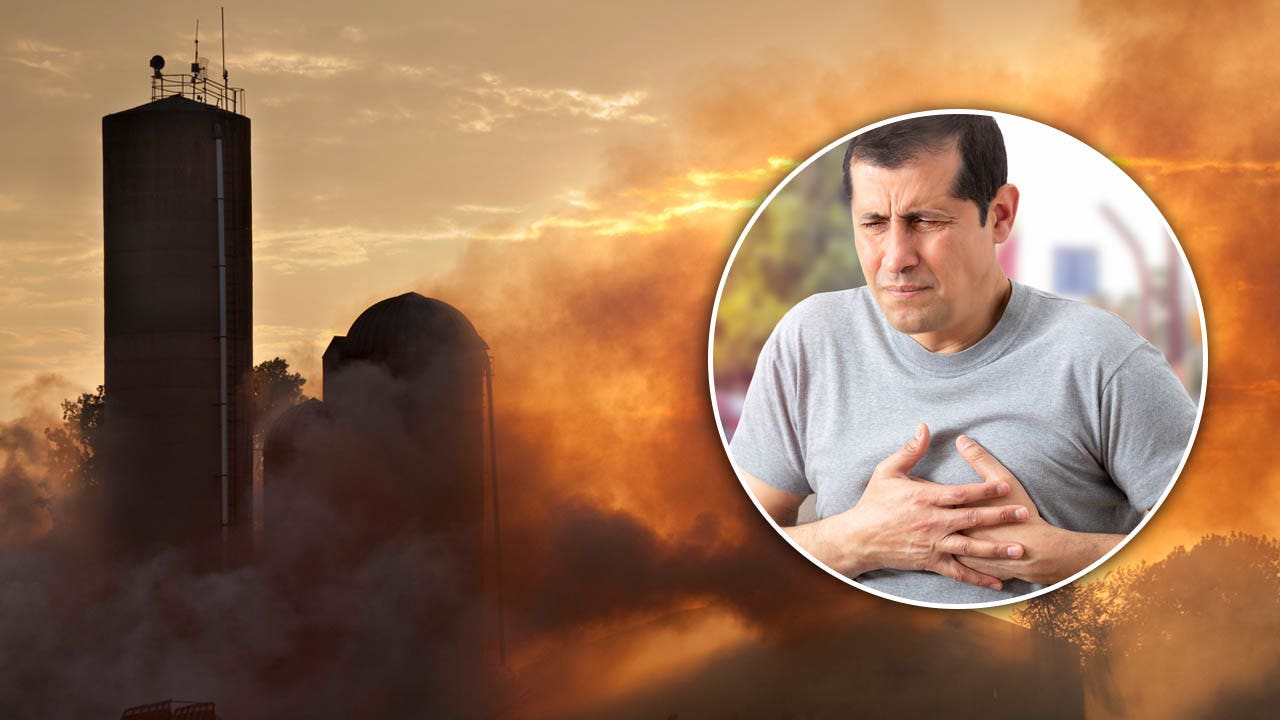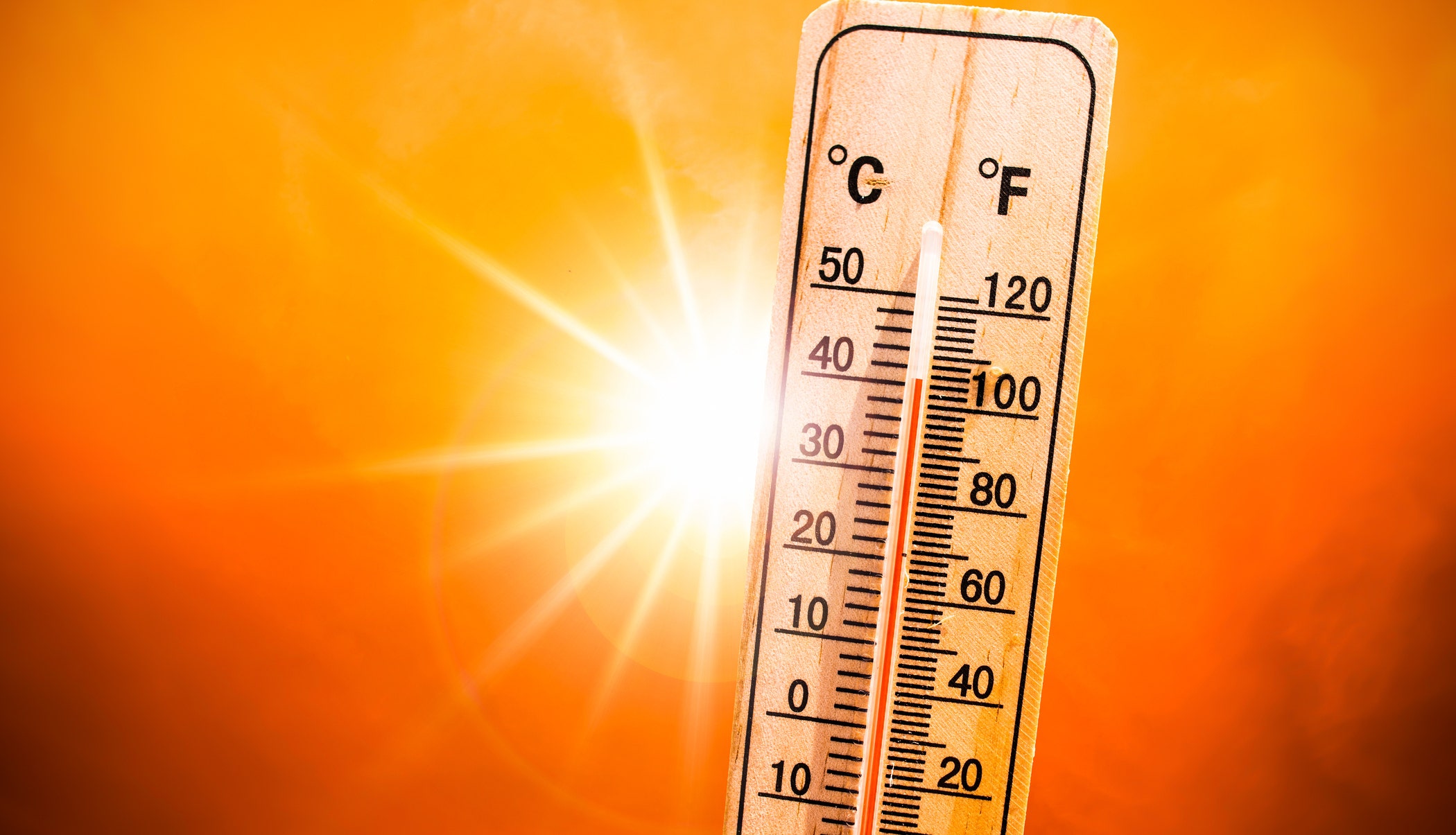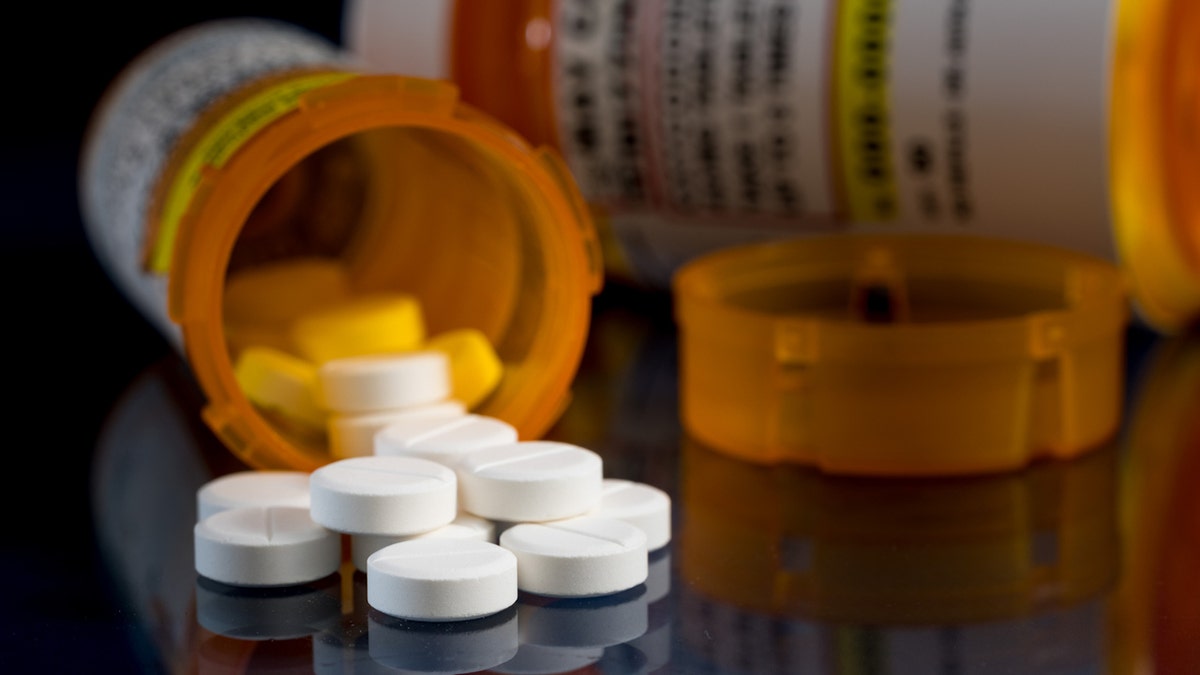Health
Heart attack death risk can double during heat waves and high pollution, study finds: ‘A perfect storm’

Certain groups of people may have twice the risk of dying from a heart attack during heat waves and high levels of fine particulate pollution, according to a new study published in Circulation, the journal of the American Heart Association (AHA).
Researchers analyzed the specifics of over 202,000 heart attacks that occurred in the Chinese province of Jiangsu between the years 2015-2020.
They found that days with “extreme heat, extreme cold or high levels of fine particulate matter air pollution” were linked to a higher risk of death from cardiac events.
(“Fine particulate matter” refers to particles that are 2.5 microns or fewer in diameter.)
SUMMER MELTDOWNS: HERE’S HOW EXTREME HEAT CAN AFFECT YOUR MOOD AND MENTAL HEALTH
The study focused on Jiangsu, since the region experiences a wide range of temperatures and fine particulate pollution levels, a press release from AHA said.
To determine when a heat wave was occurring, the researchers used the daily heat index, which measures a combination of heat and humidity.
Certain groups of people may have twice the risk of dying from a heart attack amid heat waves and high levels of fine particulate pollution, a new study has found. (iStock)
The death risk was twice as high during four-day heat waves that had fine particulate pollution above 37.5 micrograms per cubic meter, per the study findings.
The risk was highest among women and older adults.
Among the adults who died from heart attacks, the average age of death was 77.6, with 52% of the those who passed older than age 80.
AI HEART SCAN AIMS TO CATCH BLOCKAGES YEARS BEFORE SYMPTOMS: ‘UNBELIEVABLE BREAKTHROUGH’
“Extreme temperature events are becoming more frequent, longer and more intense, and their adverse health effects have drawn growing concern,” said senior author Yuewei Liu, M.D., PhD, an associate professor of epidemiology in the School of Public Health at Sun Yat-sen University in Guangzhou, China, in the press release.
“Another environmental issue worldwide is the presence of fine particulate matter in the air, which may interact synergistically with extreme temperatures to adversely affect cardiovascular health,” he continued.

To determine when a heat wave was occurring, the researchers used the daily heat index, which measures a combination of heat and humidity. (iStock)
“However, it remains unknown if and how co-exposure to extreme temperatures and fine particulate pollution might interact to trigger a greater risk of death from heart attack, which is an acute response potentially brought on by an acute scenario and a great public health challenge due to its substantial disease burden worldwide.”
‘Perfect storm’
Dr. Alexander Postalian, a cardiologist at The Texas Heart Institute, was not part of the research but said the findings are in line with what he has observed.
“Exposure to extreme heat not only increases individuals’ risk for heat exhaustion and heat stroke, but it also puts stress on their cardiovascular systems, making their hearts work harder,” he told Fox News Digital.
“This increased exertion can raise the risk of heart attacks or heart failure.”
“Extreme temperature events are becoming more frequent, longer and more intense, and their adverse health effects have drawn growing concern.”
The combination of extreme heat and extreme pollution is the “perfect storm,” Postalian said — causing stress for an individual’s cardiovascular system.
“Exposure to either of these situations increases the risk of heart attacks and heart issues,” he said.
Staying safe in extreme conditions
To help prevent the risk of death from heart attack, the study researchers recommended reducing exposure to both extreme temperatures and fine particulate pollution.
“Strategies for individuals to avoid negative health effects from extreme temperatures include following weather forecasts, staying inside when temperatures are extreme, using fans and air conditioners during hot weather, dressing appropriately for the weather, proper hydration and installing window blinds to reduce indoor temperatures,” said Liu in the release.
TEXAS POSTAL WORKER DIES WHILE DELIVERING MAIL IN ‘DANGEROUS ENVIRONMENT’ WITH RECORD-HIGH TEMPS
“Using an air purifier in the house, wearing a mask outdoors, staying clear of busy highways when walking and choosing less strenuous outdoor activities may also help to reduce exposure to air pollution on days with high levels of fine particulate pollution,” he added.

“Fine particulate matter” refers to particles that are 2.5 microns or fewer in diameter. (Getty Images)
Individuals with a history of heart disease or other significant cardiovascular problems should watch for chest pain or shortness of breath, take shorter walks outside and limit total time spent outside during extreme heat conditions, Postalian recommended.
“Some medications, such as diuretics, can increase the likelihood of developing dehydration,” the cardiologist added.
CLICK HERE TO SIGN UP FOR OUR HEALTH NEWSLETTER
“Dehydration can cause a drop in blood pressure, creating feelings of lightheadedness, thereby increasing the risk of injuries from falls — and it also can affect one’s kidney function,” he continued.
“All individuals should drink plenty of fluids to avoid dehydration.”
People taking cardiovascular medications or suffering from heart disease should avoid spending prolonged time in temperatures above 100 degrees, and should talk to their doctors about ways to protect themselves from extreme weather conditions, Postalian added.

Health
Ask a doctor: ‘Is it ever OK to take someone else’s prescription medication?’

Most of us have, at some time or another, asked a friend or family member for some over-the-counter medicine to treat a headache or an upset stomach, as the dosage and directions are fairly universal.
But is the same protocol appropriate when it comes to taking someone else’s prescription medication?
The resounding answer from medical doctors is an emphatic “no.”
MEDICINE CABINET MUST-HAVES: 9 ESSENTIALS EVERY HOUSEHOLD SHOULD HAVE ON HAND
There are specific reasons why.
“Taking someone else’s prescribed medication can be very harmful,” LaTasha Perkins, M.D., a family physician at Medstar Georgetown University Hospital in Washington, D.C., told Fox News Digital.
Doctors agreed that sharing prescription medications with others is a bad idea. (iStock)
“You need to take only your own medicine and not someone else’s, because so much goes into figuring it out.”
Numerous considerations are involved in prescribing medication to a patient, Perkins said — including health status, medical history and blood work — which can be completely different from one person to the next.
Even if you take the same medication as someone else, the other person may be on a different dose of it, the doctor noted.
TRAVELING INTERNATIONALLY? IT COULD BE ILLEGAL TO BRING ALONG THESE MEDICATIONS, ACCORDING TO A PHARMACIST
“A lot of medications also look and sound the same, so you have to take what was specifically prescribed to you,” she cautioned.

Numerous factors go into prescribing medication to a patient, including health status, medical history and blood work, according to doctors. (iStock)
Drug interactions present another concern.
“If you’re taking vitamins or any other medication that may interact with a prescription medicine, that should be taken into account when tailoring your prescription,” Perkins said.
Allergies are yet another key consideration, the doctor warned, as some people are allergic to the additives in medications.
“There’s a reason the medication is prescribed — because it’s personalized to each individual based on a variety of health factors,” Perkins said.

The consequences of sharing prescription medication — which is never a good idea — can range from severe allergic reactions to medication interactions and overdosing, one doctor warned. (iStock)
Chad Weston, M.D., a physician with Novant Health Oceanside Family Medicine & Convenient Care – Brunswick in Shallotte, North Carolina, agreed that taking a medication prescribed to a different individual, even for seemingly similar symptoms, can be harmful and have unintended consequences.
CLICK HERE TO SIGN UP FOR OUR HEALTH NEWSLETTER
“These consequences range from severe allergic reactions to medication interactions and overdosing, causing damage to organs such as the liver and kidneys,” he said in an interview with Fox News Digital.
Instead of seeking symptom relief by taking someone else’s medication, you should see a doctor to get an accurate medical diagnosis and prescription, Weston advised.

Instead of seeking symptom relief by taking someone else’s medication, you should see a doctor to get an accurate medical diagnosis and prescription, a doctor advised. (iStock)
In the event that you’re traveling and don’t have your medicine with you, Perkins said the best thing to do is call your doctor.
“If you don’t have your medicine, we can call it into a pharmacy wherever you are,” she said.
For more Health articles, visit www.foxnews/health
“This is why it’s so important to have a family physician,” she said.
“Having a relationship with your doctor can help you navigate situations like this.”
Health
12 Best Stylish Summer Sandals for Women Over 50 With Arch Support, Cushioning + More

Sign Up
Create a free account to access exclusive content, play games, solve puzzles, test your pop-culture knowledge and receive special offers.
Already have an account? Login
Forgot your password?
Get back to the Sign In
Use left and right arrow keys to navigate between menu items.
Use escape to exit the menu.
Health
TikTok’s #Watertok Trend: How the Tasty Twist on Drinking Water Boosts Weight Loss

Sign Up
Create a free account to access exclusive content, play games, solve puzzles, test your pop-culture knowledge and receive special offers.
Already have an account? Login
Forgot your password?
Get back to the Sign In
Use left and right arrow keys to navigate between menu items.
Use escape to exit the menu.
-

 World1 week ago
World1 week agoSwitzerland's massive security effort at the Ukraine peace conference
-

 News1 week ago
News1 week agoJoe Biden, Barack Obama And Jimmy Kimmel Warn Of Another Donald Trump Term; Star-Filled L.A. Fundraiser Expected To Raise At Least $30 Million — Update
-

 News1 week ago
News1 week agoIt's easy to believe young voters could back Trump at young conservative conference
-

 World1 week ago
World1 week agoSwiss summit demands 'territorial integrity' of Ukraine
-

 World1 week ago
World1 week agoProtesters in Brussels march against right-wing ideology
-

 World1 week ago
World1 week agoRussia-Ukraine war: List of key events, day 842
-

 Politics1 week ago
Politics1 week agoBiden looks to capitalize on star-studded Hollywood fundraiser after Trump's massive cash haul in blue state
-

 Politics1 week ago
Politics1 week agoJudge rules Missouri abortion ban did not aim to impose lawmakers' religious views on others





/cdn.vox-cdn.com/uploads/chorus_asset/file/16447558/acastro_190621_1777_prime_day_0003.0.jpg)








